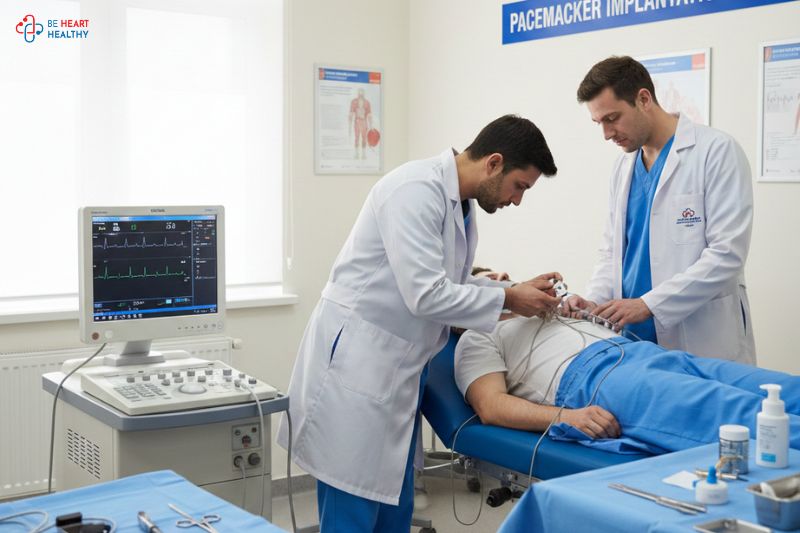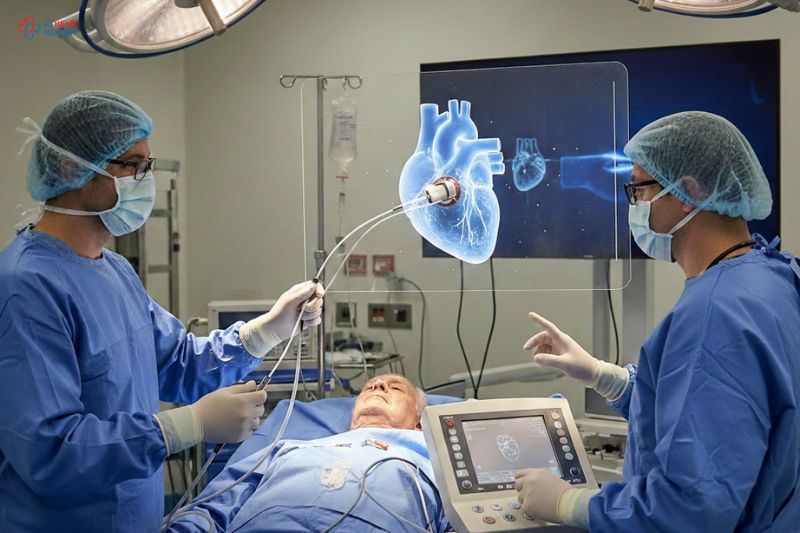Aortic stenosis is a condition where the aortic valve narrows, limiting blood flow from the heart to the body. It’s a progressive disease that often requires close monitoring and, in many cases, timely intervention. When it comes to aortic stenosis treatment Mumbai, patients today have access to some of the most advanced and minimally invasive procedures available — including Transcatheter Aortic Valve Replacement (TAVR) and surgical valve replacement. The first line of treatment depends on the severity of the condition, age of the patient, symptoms, and overall heart function.
In Mumbai, leading heart specialists offer both medical management for early-stage cases and interventional options for those with moderate to severe disease. Early diagnosis and personalised treatment planning are key to improving survival and quality of life.
Recognising the Aortic Stenosis 3 Symptoms That Should Never Be Ignored
Many patients delay treatment simply because they are unaware of the classic symptoms of aortic stenosis. The aortic stenosis 3 symptoms that commonly present in moderate to severe cases include:
- Chest Pain or Tightness: Often brought on by exertion and relieved by rest. This happens because the heart struggles to pump blood through the narrowed valve.
- Breathlessness or Fatigue: Especially during activity. As the valve narrows, the heart cannot pump sufficient blood to meet the body’s oxygen demand.
- Fainting (Syncope): Caused by reduced blood flow to the brain, especially during physical exertion.
If you’re experiencing any of these symptoms, it’s crucial to consult a cardiologist immediately. In many cases, a simple echocardiogram can diagnose the severity of the stenosis and guide the next steps in treatment.
What to Expect During Aortic Valve Stenosis Surgery Recovery
For patients requiring surgical intervention, open-heart aortic valve replacement remains a common and effective option. Understanding the aortic valve stenosis surgery recovery timeline can help ease anxiety and promote faster healing.
Typically, recovery in the hospital lasts 5–7 days, depending on the patient’s overall health and any co-existing conditions. After discharge, patients need 6–8 weeks of home rest and gradual return to activities. Cardiac rehabilitation is often recommended to rebuild strength and monitor heart function post-surgery.
Advancements such as minimally invasive surgical techniques and robotic-assisted surgery have reduced recovery times significantly, especially in younger or lower-risk patients. On the other hand, elderly patients or those at high surgical risk may be advised TAVR instead, which involves a shorter hospital stay and faster return to routine.
Exploring the Aortic Stenosis Treatment Options for Every Stage
When it comes to aortic stenosis treatment options, there’s no one-size-fits-all approach. The treatment pathway is typically determined by the stage of the disease and the patient’s risk profile. Options include:
- Medical Monitoring: For mild cases, cardiologists may recommend regular echocardiograms, blood pressure control, and symptom tracking.
- Surgical Valve Replacement: The gold standard for younger patients or those with low surgical risk. It provides long-lasting results.
- TAVR (Transcatheter Aortic Valve Replacement): Ideal for patients who are older or considered high-risk for surgery. This minimally invasive procedure replaces the valve via a catheter, usually through the groin.
In Mumbai, several top hospitals offer a multi-disciplinary heart team approach to determine the best course of action, combining the expertise of cardiologists, cardiac surgeons, and imaging specialists to ensure safer outcomes.
Know When to Seek Help and Choose the Right Care
Recognising the symptoms early, understanding your treatment options, and choosing the right healthcare team can make all the difference in managing aortic stenosis. Whether you’re considering surgical or minimally invasive solutions, Mumbai has emerged as a hub for world-class cardiac care.
If you’re searching online for terms like aortic stenosis treatment options or wondering about the aortic valve stenosis surgery recovery timeline — it’s time to get a professional opinion. Your cardiologist can help you determine if you’re in the early stages of the disease or need active intervention. And if you’re based in the city, start with a trusted specialist in aortic stenosis treatment Mumbai for comprehensive evaluation and care.



